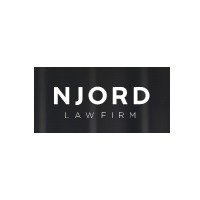Best Landlord & Tenant Lawyers in Copenhagen
Share your needs with us, get contacted by law firms.
Free. Takes 2 min.
Free Guide to Hiring a Real Estate Lawyer
List of the best lawyers in Copenhagen, Denmark
About Landlord & Tenant Law in Copenhagen, Denmark
Landlord & Tenant law in Copenhagen, Denmark, is designed to balance the rights and responsibilities of landlords and tenants, ensuring a fair and transparent rental market. These laws govern various aspects of renting, including lease agreements, rent regulations, tenant rights, and landlord obligations. The Danish Rent Act is the primary legislative framework governing these interactions, providing protections to tenants while allowing landlords to manage their properties effectively. Understanding these laws is crucial for both parties to avoid conflicts and ensure a smooth renting experience.
Why You May Need a Lawyer
While many landlord and tenant issues can be resolved through direct communication and adherence to the lease agreement, there are situations where legal assistance becomes necessary. Common situations include:
- Disputes over rent increases or the legality of rent levels
- Eviction processes, where the cause or legality is in question
- Deposit disputes, particularly regarding what is considered 'fair wear and tear'
- Disagreements over maintenance responsibilities and property condition
- Unlawful termination of lease agreements
- Interpretation of lease terms and conditions
- Non-compliance with housing standards and regulations
An experienced lawyer can provide guidance, represent you in disputes, and help ensure that your rights are protected.
Local Laws Overview
Key aspects of local laws that are relevant to Landlord & Tenant in Copenhagen include:
- Rent Control: Copenhagen has regulations controlling rent levels, particularly for older buildings. Understanding these controls can help prevent unlawful rent increases.
- Lease Agreements: These must be created according to the Danish Rent Act. They should detail all terms, including rent, deposit, duration, and maintenance obligations.
- Deposit Regulations: Typically, tenants can be charged up to three months' rent as a deposit, which is used to cover any damages beyond normal wear and tear when the tenancy ends.
- Notice Periods: Both landlords and tenants must adhere to legal notice periods for terminating lease agreements, which vary depending on the lease type.
- Tenant's Right to Complain: Tenants have the right to complain to the Rent Tribunal if they believe the rent is too high or the property has defects that the landlord fails to address.
Frequently Asked Questions
What is the maximum rent deposit a landlord can require?
The maximum deposit is usually three months' rent. This sum is intended to cover potential damage or non-payment during the tenancy.
How much notice must a tenant give to terminate a lease?
Typically, the notice period for tenants is three months, but this can vary depending on the specific terms of the lease agreement.
Can my landlord increase my rent without consent?
Landlords must follow specific guidelines set by rent control laws when increasing rent. Any increase must be justified and comply with the terms laid out in the lease agreement.
What should I do if I disagree with my landlord about rent increases?
You can appeal to the Rent Tribunal to assess whether the rent increase is justified according to local laws.
Who is responsible for property maintenance and repairs?
Generally, landlords are responsible for maintaining the property and ensuring it meets housing standards, while tenants must take care of everyday upkeep.
What are the consequences of not paying rent on time?
Failure to pay rent can result in eviction proceedings initiated by the landlord, which might lead to legal action to recover owed amounts.
Is subletting allowed without informing my landlord?
Subletting typically requires the landlord's permission, and the lease agreement should be checked to see if any specific rules apply.
What happens if a landlord terminates the lease unlawfully?
If you believe the lease has been terminated unlawfully, you can contest the termination in court or through the Rent Tribunal.
Can tenants modify the rented property?
Tenants usually need the landlord’s written consent to make significant alterations to the property. Minor changes are often negotiable.
Where can I get help if my landlord violates the rental agreement?
Tenants can seek assistance from tenant organizations or legal professionals to address contract violations and enforce their rights.
Additional Resources
Here are some resources and organizations that can be helpful:
- The Danish Tenant Association (Lejernes LO): Offers support and advice to tenants regarding their rights and obligations.
- The Rent Tribunal: Handles disputes related to rent, including rent levels and housing defects.
- The Danish Ministry of Housing: Provides information on housing regulations and tenant rights.
- Local Legal Aid Centers: Offer free or low-cost legal assistance for those needing advice on landlord and tenant law.
Next Steps
If you require legal assistance with a landlord and tenant issue, consider the following steps:
- Gather all relevant documentation, such as the lease agreement, correspondence, and evidence related to the dispute.
- Contact a tenant’s association or legal aid service to discuss your situation and get initial advice.
- Find a lawyer who specializes in landlord and tenant law to provide professional guidance and representation if needed.
- Consider mediation or negotiation with your landlord or tenant to resolve the issue before proceeding to formal legal action.
Taking informed steps can significantly affect the outcome of your situation and ensure your rights are upheld.
Lawzana helps you find the best lawyers and law firms in Copenhagen through a curated and pre-screened list of qualified legal professionals. Our platform offers rankings and detailed profiles of attorneys and law firms, allowing you to compare based on practice areas, including Landlord & Tenant, experience, and client feedback.
Each profile includes a description of the firm's areas of practice, client reviews, team members and partners, year of establishment, spoken languages, office locations, contact information, social media presence, and any published articles or resources. Most firms on our platform speak English and are experienced in both local and international legal matters.
Get a quote from top-rated law firms in Copenhagen, Denmark — quickly, securely, and without unnecessary hassle.
Disclaimer:
The information provided on this page is for general informational purposes only and does not constitute legal advice. While we strive to ensure the accuracy and relevance of the content, legal information may change over time, and interpretations of the law can vary. You should always consult with a qualified legal professional for advice specific to your situation.
We disclaim all liability for actions taken or not taken based on the content of this page. If you believe any information is incorrect or outdated, please contact us, and we will review and update it where appropriate.

















